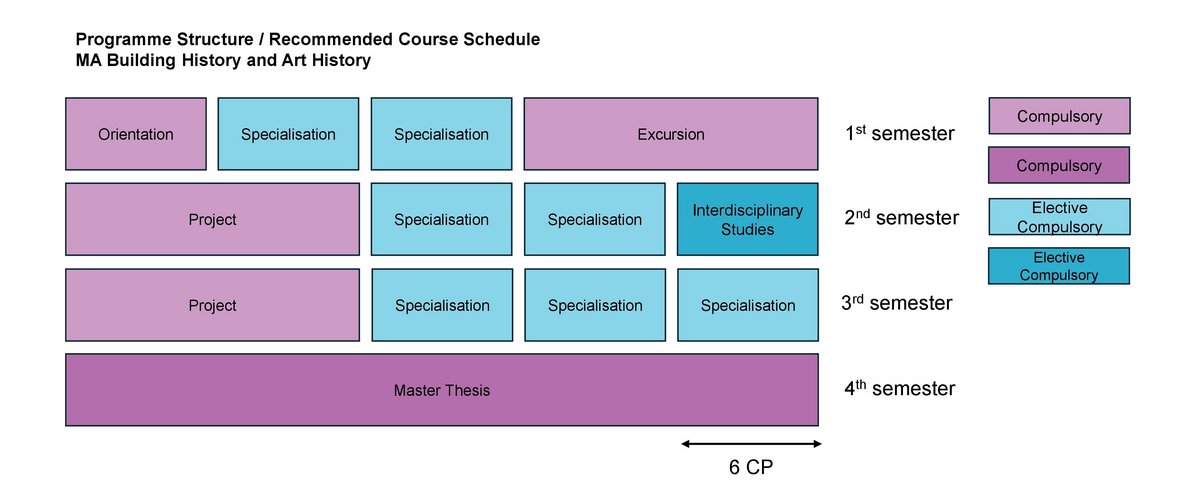Content and Structure of the Study Programme
The Master's degree programme Building History and Art History serves to deepen previously acquired specialist knowledge and methodological knowledge in the disciplines represented. The modules offered are primarily intended to enable students to independently develop a critically reflected and well-founded methodological approach to architectural, artistic, architectural engineering, urban planning and heritage conservation phenomena that is appropriate to their own research interests.
In the first year of study, the compulsory orientation module provides an overview of the current research debates and methodological discussions in art history, building research, monument conservation, the history of building technology and architectural theory as they are represented and discursively negotiated at the IBK.
The main focus of the degree programme is on a total of seven specialisation modules totalling
42 CP, which can be selected from a catalogue of compulsory elective modules and enable students to develop their own individual specialisation. At least one compulsory elective module must be chosen from each of the three module areas ‘City and Architecture’, ‘Art and Communication’ and ‘Construction and Conservation’. The other four modules can be freely chosen according to individual interests. In a constellation that is unique in Germany, there is the opportunity to take courses held in English together with the international students of World Heritage Studies. In addition, it is recommended that you take one of these four freely selectable modules in the module area ‘Professional Perspectives’ and gain valuable career-orientated insights into a practical field as part of an internship.
Two project modules form a further key component of the Building History and Art History degree programme. They promote the practical relevance of the degree programme, impart basic skills of knowledge communication and key qualifications such as the ability to work in a team, creativity, critical thinking, planning and project management.
An excursion deepens the historical and theoretical knowledge by analysing architectural, artistic, constructional, urban planning and monument preservation phenomena. Visits to relevant works, buildings and places allow students to experience these in their specific materiality and spatial location in a vivid way.

